Black Pride NL: Protest against anti-Black Queer & Trans Violence
door Leonel Piccardo
Mariska (a pseudonym) fears what will happen with her little savings now the COVID19 outbreak rages on. It has already been weeks since the Ministry of Health’s Outbreak Management Team has prohibited so-called “contact professions”, and Mariska and her colleagues have been at home ever since. “Some ladies will suffer unbearably”, the representative of the Prostitution Information Centre (PIC) says. Many sexworkers she knows work illegally behind the famous red light windows and will not be able to access social emergency care. “They will be out on the street before long”. Others, she says, continue to work out of pure necessity, risking their own and families’ health.
The COVID-19 pandemic has a severe impact on the daily life of Amsterdam’s Red Light District. There is no area in the Netherlands where the measures to prevent the disease from spreading have created such a large contrast with the daily status-quo than at ‘de Wallen’, as the area with many brothels, coffeeshops and sex workers is called. The streets are empty — tourists, customers that usually brought much needed money, have long gone. This photo story tells the story of the ladies of love and explores their fears, doubts and shows what actually happened when the red curtains closed.
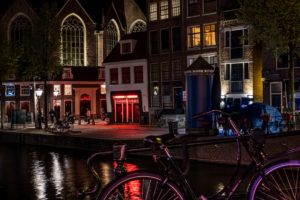
The Red Lights of the Wallen continue to shine bright even if commerce has been banned since the 15th of March. Many sex-workers have stopped working, or have turned to do offer their services online.
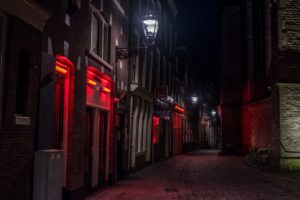
The alleyway next to the Oude Kerk is normally hired by ladies from Latin America, who their customers price for their sweetness and sass, explains Mariska with a smile.
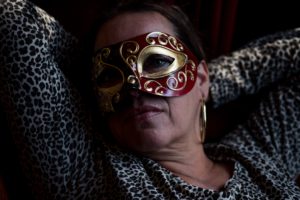
Registered as a nurse in the Dutch Chamber of Commerce, Mariska tries to keep her profession secret. It is out of fear and stigma that she goes through great lengths to protect her identity. She has prevented from applying for corona emergency funding, as nurses are not eligible for such funding.
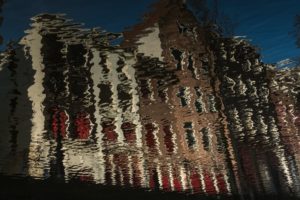
Closed red curtains reflected in an Amsterdam canal show sex work came to a halt. Social distance of 1,5 meter is hard to maintain in a “contact-profession”, with physical exchanges being the main services the window girls offer.
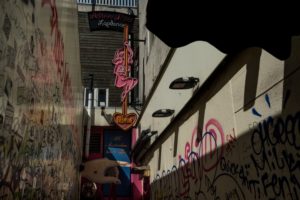
Sex and strip clubs are closed. Events have been cancelled at least until 1st of September; until the 1st of June people can only gather with three persons, keeping 1,5 meter distance of each other.
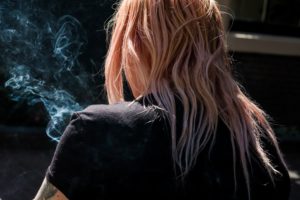
Jeanet usually organises gangbangs in clubs and cannot do her job now. She applied for a Covid-19 welfare payment provided by the government. Awaiting the payments, she turned to escort work illegally to be able to pay her rent.
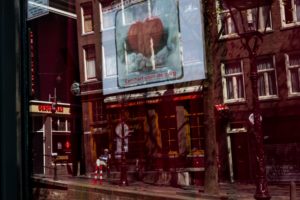
Behind some of the windows of the Red Light District a sign is hung to demonstrate support for the Dutch care system.
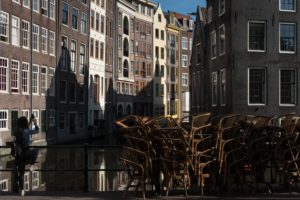
Bars and terraces remain closed. The Red Light District is located in one of the most antique and beatiful parts of town, but in non-Covid times it is hidden by the noise of mass tourism.
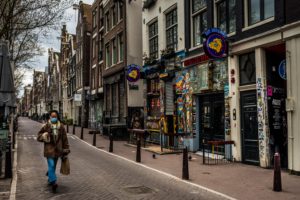
The Bulldog, Amsterdam’s most famous coffeeshop, is also localized in the area and is closed since the 15th of March. A few days after the closure, the government decided that people can come to the coffeeshops for take away.
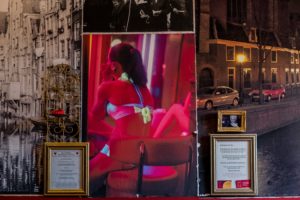
Mariska received us in the PIC, the organisation worried about the faith of “their girls” during this difficult time. It is hard for her to estimate the size of the problem: “girls like us don’t always registered, they try to avoid getting in touch with authorities, particularly when they have come illegally. The lack of data on the number of prostitutes is now harming an effective emergency response”.
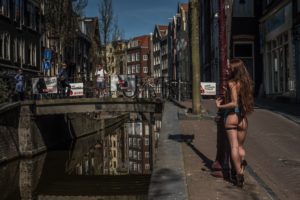
Anouk is a Dutch latex-model and works as escort-lady. Afraid to contract or transmit the disease, she temporarily stopped working. Her income dropped dramatically. She used the rarily seen empty streets of ‘De Wallen’ as a decor for a photoshoot to improve her portfolio.
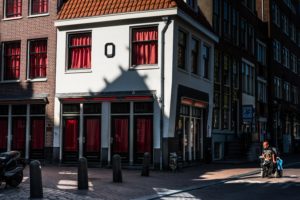
Streetview of the almost empty streets, leaving space to the original inhabitants, that go usually unnoticed among the number of tourists strolling the area.
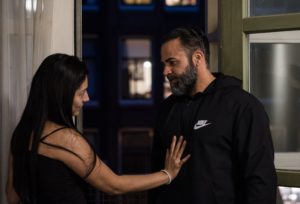
Ricardo and Karen are a couple that perform erotic shows at the famous Casa Rosso. Their boss announced to pay their salaries for the first month, but they are uncertain of what whill happen afterwards. Karen is not only be worried about her income, but also about her family living in Ecuador and Spain, where the number of Corona deaths have expanded rapidly.
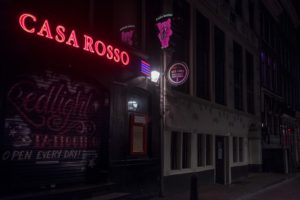
Employees of sex clubs are often paid in a construction called opting. They pay tax, but do not have a fixed contract. They can neither apply for governmental support for freelancers, nor for that for permanent employment, and fall by the wayside.
About us:
Sanne Derks is a Dutch photojournalist with a strong focus on social documentary projects. She publishes in various media e.g. The Guardian, El País, and Deutsche Welle. She is a member of the Women Photograph network and a Fellow of the Robert Bosch Foundation. In 2019 she was awarded the 3rd prize of the De Zilveren Camera, a prestigious Dutch photojournalism award, was selected for the New York Portfolio Reviews and nominated for the 6×6 Talent Programme of World Press. www.sannederks.com
Ingrid Gercama is a prize-winning journalist based in the Netherlands. She mostly reports on social, environmental and health issues, and publishes in the Sunday Times, The Guardian and the New Internationalist. She is a Fellow of the Robert Bosch Foundation, and a European Journalism Center, Pulitzer Center on Crisis and Free Press Unlimited grantee. She was also awarded the Lorenzo Natali Media Prize from the European Commission for her reporting on the Ebola epidemic in Liberia. www.anthrovision.com
by Sanne Derks & Ingrid Gercama